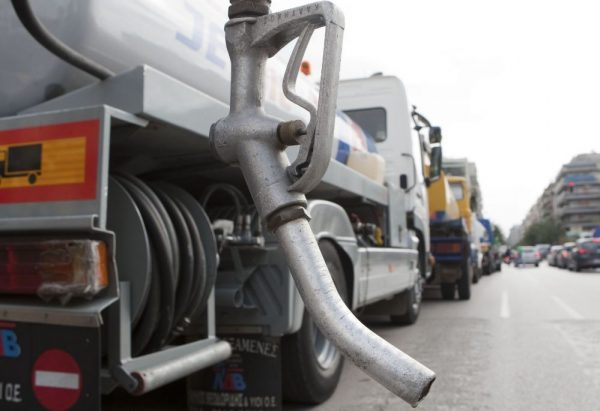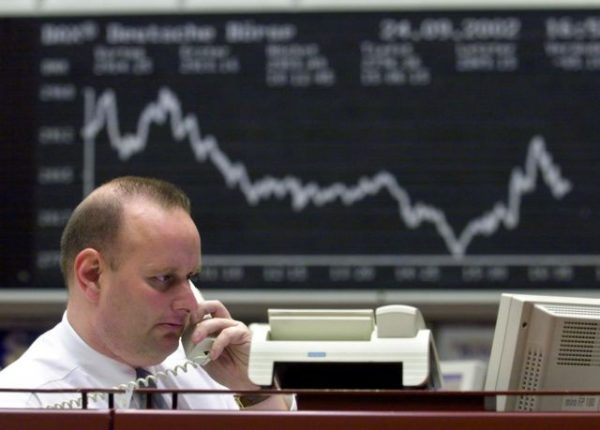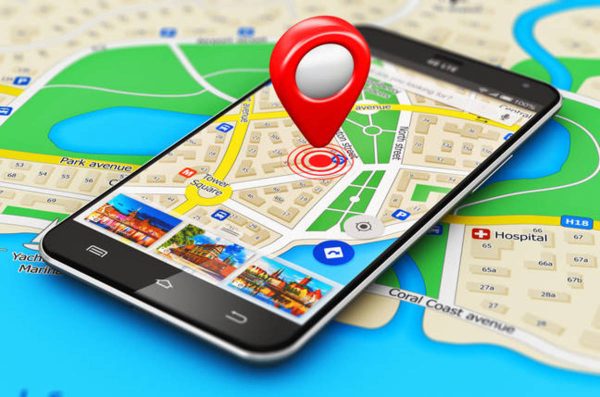
The pandemic and the measures adopted to deal with it have significantly burdened our daily lives, creating concerns for the mental health and well-being of workers worldwide. EY Hellas, Hellas EAP and the Laboratory of Experimental Psychology of the Department of Psychology of the National and Kapodistrian University of Athens, wanting to investigate the extent and dimensions of the problem, conducted a joint research on mental health and well-being in Greece.
The survey, which was conducted in May / June 2021, at the time when the second universal lockdown was completed in Greece, and was completed by 1,232 employees in the private and public sector of the country, brings to light worrying findings about the effects of the pandemic on everyday life and in the mental health of Greek workers.
More specifically, nine variables were investigated: stress, depression, physicalization, anger, loneliness, quality of life (wellbeing), quality of work life, attitudes towards remote work and attitudes towards mental health. It is noted that during the survey period, 35% of the participants worked remotely, 30% in a physical environment and 35% in a hybrid work scheme.
Increased signs of depression, anxiety and anger
Research has recorded high rates for a number of symptoms associated with depression. Thus, more than one third of the employees surveyed feel depressed (35%) and pessimistic about the future (35%), or state that they have no appetite for anything (34%).
Stress-related symptoms are quite widespread, with two in three (68%) feeling nervous or upset, 40% being overwhelmed and 18% feeling fearful. Unprecedented pandemic conditions have also led to outbursts of anger, with 70% of respondents feeling irritable, 3 in 10 having uncontrollable outbursts of anger, and 2 in 10 saying they often get involved in arguments.
Expected, especially during the period of lockdowns, was the intensity of the feeling of loneliness. Half of the participants said they felt a little to a lot of loneliness, while 17% said they felt isolated, with women and young people showing the highest rates of loneliness.
The phenomena of somatization are also intense, ie the expression of psychological or emotional problems as physical symptoms, such as headaches, intense stress and panic attacks. Indicatively, one in three employees (35%) stated that they showed weakness and dizziness, 15% have nausea or stomach disorders, and 1 in 10 noticed difficulty in breathing and pain in the heart or chest.
Women and younger employees are more burdened
According to the research, the conditions of the pandemic seem to have affected workers, however, in most variables, the problems are more intense in women, who show higher values of stress, depression and somatization than the male participants, while they also show a lower quality value. of life. This finding is probably related to the fact that women often have a disproportionately large responsibility for more activities besides their work. Especially during the two lockdowns in Greece, it is certain that they were called to balance between conflicting priorities, such as childcare and housework, working at the same time, in several cases, from home.
Despite strong initial concerns about the effects of the pandemic on the elderly, they eventually appear to be more resilient than younger people, who, on the other hand, have higher rates of anxiety, depression, somatization and anger.
At the same time, the presence of children in the family seems to reduce the psychological effects of the pandemic, as workers who have children show lower rates of anxiety, depression, physicalization and loneliness, while also displaying a higher quality of life.
The survey also found that problems, in general, are more pronounced in employees of public bodies and those who work remotely, while executives in positions of responsibility show lower levels of stress, depression, physicality and loneliness than other employees.
Wellness and quality of work life
Upheavals in everyday life have significantly affected the quality of life of employees. Thus, 40% say they are not sure that they can or really can not manage the stress levels they have, while 27% believe that they have been negatively affected as concerns their interpersonal relationships. In addition, 3 in 10 say they do not maintain any harmony or balance between their personal and professional lives.
Importantly, 6 in 10 say they took care of themselves during lockdowns, however, only 4 in 10 stop thinking about work when it stops and create time for rest. At the same time, only 4 in 10 say that the quality of their sleep is good.
The picture is more complex in terms of quality of working life. Only 4 in 10 in the private sector and 1 in 10 in the public sector believe that their body cares about their mental health and well-being, while, in total, 39% state that their employer supports employees who deal with issues with their mental health. (eg anxiety, stress).
At the same time, only 36% of private sector employees and 9% of public sector employees believe that their organization enables all employees to speak openly about mental health issues, while less than half (48%) know where to go to seek support within their organization when dealing with issues related to their mental well-being.
Positive views on teleworking
The research confirms that remote work has been positively accepted by the majority of employees. Three in four (76%) say they are effective while working remotely and 78% feel safe performing their role as remote workers. However, less than half (49%) feel confident that they can advance in their careers while working remotely, and only 48% have managed to maintain their physical / mental health and well-being under these conditions.
The positive findings of the research include the change in the attitude of employees towards mental health. For 44%, mental health is now their top priority.
Two out of three (63%) say that the pandemic helped them to care more about their mental health, both their own and that of others, while 65% said they were willing to seek help from a specialist when faced with increased stress. At the same time, 29% believe that the COVID-19 pandemic has helped reduce stigma in relation to mental health.
The expectations of the employees from the company
With this in mind, companies have a crucial role to play in helping employees cope with the burden of their mental health. Activities that employees would like to see include training in stress management and self-care (50%), the presence of a psychologist at work (31%), psychological support over the phone or through applications (> 20%) and remote labor policy, where possible, at 30%. One in two employees (52%) also consider it important to cultivate a culture of respect for time through new ways of working.
Commenting on the findings of the research, Ms. Eftychia Kaselaki, Partner, Consulting Services and Human Resources Consulting Services of EV Greece, said: “The pandemic, the measures of social distancing, the prolonged lockdowns and the abrupt change of the work model, inevitably had a negative impact on the mental health of workers, especially women and younger people. And while remote or hybrid forms of work has been positively accepted by the majority of employees, optimal adaptation to this regime requires careful planning and support from companies and their leadership teams. The managements of the companies and the Human Resources Bureaus, must listen to the concerns of the employees and take initiatives that will help the smooth transition to this new normality. Rewarding mental health problems and recognizing the psychological needs and challenges of personal balance and well-being is an important first step, at a time when human capital is transforming and acquiring new, increased and more complex expectations from organizations in which he works”.
Ms. Tatiana Tounta, CEO of Hellas EAP, points out that: “The pandemic has brought to the fore the major issue of the importance of good mental health and well-being of workers and highlighted the importance of their psychological security. The clear need to take care of the mental health of employees is not a “fashion” that will pass. It comes and connects a strained condition of the pre-COVID era, with the prolonged effects of the unprecedented situation we experience today on workers’ well-being and an uncertain future where physical and mental health will be a constant issue in everyday human reality. As the employees themselves now declare that their mental care is healthy
Latest News

Bank of Greece: Primary Gov. Surplus €4.1b Jan.-March 2025
The data released today by the Bank of Greece revealed that the central government’s overall cash balance recorded a surplus of €1.465 billion in the first quarter of 2025, compared to a deficit of €359 million in the corresponding period of 2024.

Greek Government Reissues 10-Year Bond Auction for €200 Million
The amount to be auctioned will be up to 200 million euros, and the settlement date is set for Friday, April 25, 2025 (T+5)

Greece Defines Continental Shelf Limits and Maritime Zones in Landmark EU Document
The Maritime Spatial Planning (MSP) framework represents a comprehensive approach to spatial planning and is crucial for the successful development of a blue and circular economy

EU Praises Greece’s RRF Progress as Revised Recovery Plan Nears Completion
Athens is preparing to submit its revised “Greece 2.0” Recovery and Resilience Plan after Easter, with a slight delay from the initial timeline but with the European Commission’s approval.

Greek €200M 10Y Bond to be Issued on April 16
The 3.875% fixed-interest-rate bond matures on March 12, 2029, and will be issued in dematerialized form. According to PDMA, the goal of the re-issuance is to meet investor demand and to enhance liquidity in the secondary bond market.

German Ambassador to Greece Talks Ukraine, Rise of Far Right & Tariffs at Delphi Economic Forum X
Commenting on the political developments in his country, the German Ambassador stressed that it was clear the rapid formation of a new government was imperative, as the expectations across Europe showed.

Athens to Return Confiscated License Plates Ahead of Easter Holiday
Cases involving court orders will also be excluded from this measure.

Servicers: How More Properties Could Enter the Greek Market
Buying or renting a home is out of reach for many in Greece. Servicers propose faster processes and incentives to boost property supply and ease the housing crisis.

Greek Easter 2025: Price Hikes on Lamb, Eggs & Sweets
According to the Greek Consumers’ Institute, hosting an Easter dinner for eight now costs approximately €361.95 — an increase of €11 compared to 2024.

FM Gerapetritis Calls for Unified EU Response to Global Crises at EU Council
"Europe is navigating through unprecedented crises — wars, humanitarian disasters, climate emergencies," he stated.









































 Αριθμός Πιστοποίησης
Αριθμός Πιστοποίησης